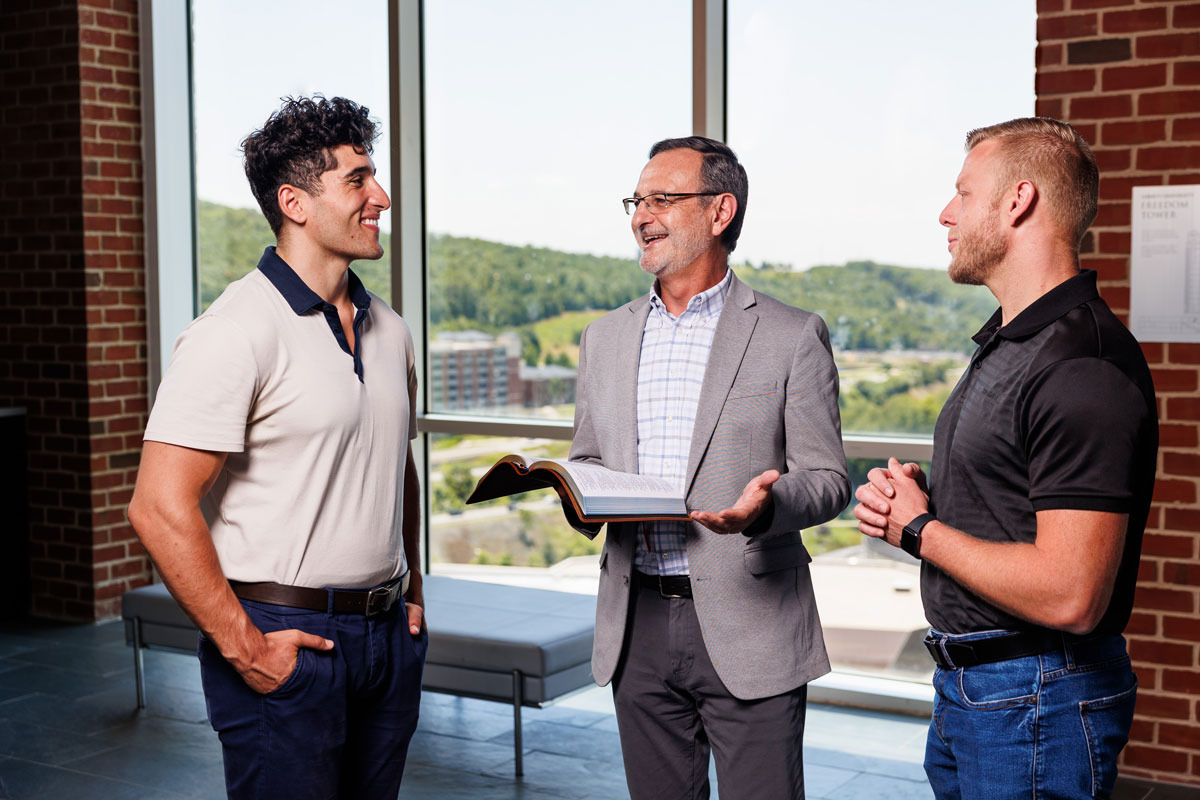Search News Archives
Filter News Articles
Additional Navigation
Mechanical engineering program receives ABET accreditation
September 4, 2019 : By Ted Allen - Office of Communications & Public Engagement
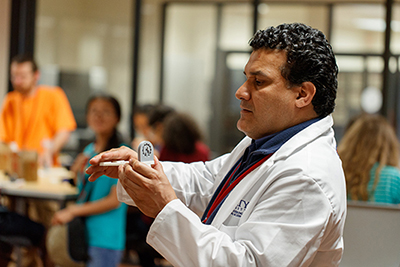
Liberty University’s Bachelor of Science in Mechanical Engineering has recently joined other School of Engineering degree programs in receiving accreditation from ABET, the recognized accreditor of college and university programs in applied science, computing, engineering, and engineering technology.
Liberty’s B.S. degrees in both Electrical and Industrial & Systems Engineering received initial accreditation in 2012, followed by Computer Engineering in 2013. These three programs were re-accredited in 2018.
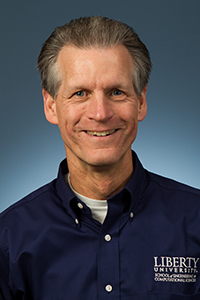 “This accreditation is very big and it adds a lot to our program,” said Dr. John Vadnal, professor of civil engineering and the university’s ABET accreditation coordinator. “We are planning on starting a master’s and a Ph.D. in engineering in January, and this will feed right into that.”
“This accreditation is very big and it adds a lot to our program,” said Dr. John Vadnal, professor of civil engineering and the university’s ABET accreditation coordinator. “We are planning on starting a master’s and a Ph.D. in engineering in January, and this will feed right into that.”
The two postgraduate programs are pending approval by the Southern Association of Colleges and Schools Commission on Colleges (SACSCOC).
Mechanical engineering launched in 2014 and is the largest degree program in the School of Engineering. Civil engineering is the school’s newest degree offering and started this fall.
Liberty celebrated its first mechanical engineering graduates in 2018, a prerequisite for accreditation. The university submitted a 300-page self-study, describing its mechanical engineering program, faculty, and students, before ABET representatives visited to see the program firsthand and interview students and administrators.
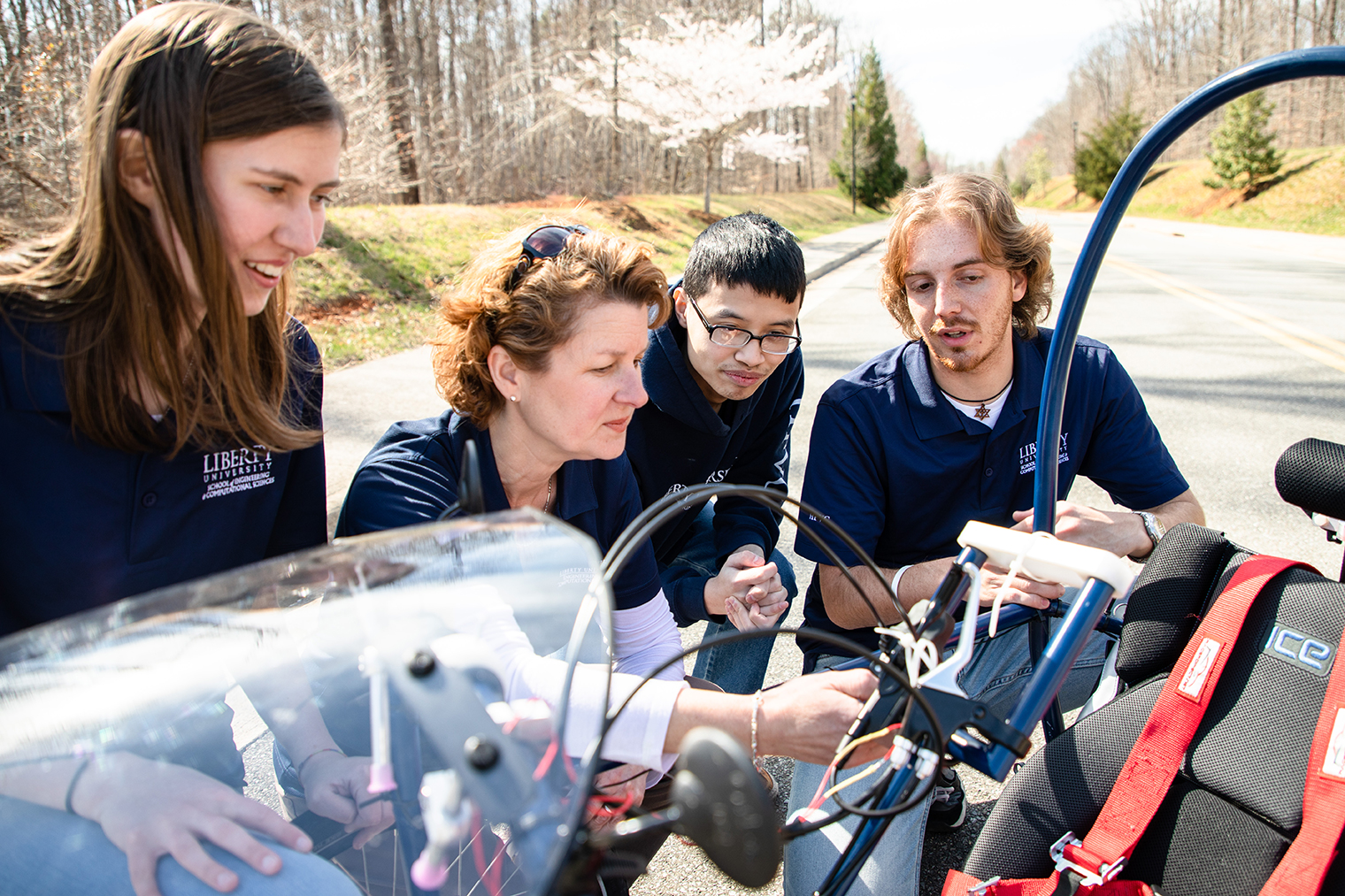 “We’re really, really happy with this accreditation process taking such a short period of time, and that we received it with flying colors on our first attempt,” said Dr. Hector Medina, a mechanical engineering professor who has led the development of Liberty’s Human-Powered Vehicle Competition project since it started in 2014. “It testifies to the strength of our program, which puts a lot of focus on hands-on, practical activities, both in projects within courses and extracurricular activities. We expose students to experiences that they wouldn’t get otherwise, like working on an electric race car (sponsored by Hendrick Automotive) and a Baja vehicle.”
“We’re really, really happy with this accreditation process taking such a short period of time, and that we received it with flying colors on our first attempt,” said Dr. Hector Medina, a mechanical engineering professor who has led the development of Liberty’s Human-Powered Vehicle Competition project since it started in 2014. “It testifies to the strength of our program, which puts a lot of focus on hands-on, practical activities, both in projects within courses and extracurricular activities. We expose students to experiences that they wouldn’t get otherwise, like working on an electric race car (sponsored by Hendrick Automotive) and a Baja vehicle.”
More than 4,000 programs at nearly 800 colleges and universities in 32 countries have received ABET accreditation, which is a requirement for many federal student loans, grants, and scholarships.
ABET accreditation also enhances students’ employment opportunities and supports their entry into a technical profession through licensure, registration and certification, with several employers requiring graduation from an ABET-accredited program as a minimum qualification. Many foreign national accrediting systems are based on the ABET model, and multinational corporations require graduation from an accredited program.
“ABET is the accrediting agency for engineering programs at technical universities around the United States and the world, and it is often an industry criterion when it comes to hiring our students,” Medina said. “At the end of the day, what we want for our students is job opportunities, and this helps them meet those goals. In addition, it helps us to see how our program compares with others in the nation.”
One recent mechanical engineering graduate is working at the aerospace company Lockheed Martin in Cape Canaveral, Fla., and two graduates are pursuing Ph.D.s.
Vadnal commended School of Engineering Dean Dr. Mark Horstemeyer for his vision for the school.
“He wants Liberty to be one of the top 80 engineering schools in the nation by 2028, and he is going to take us to heights that nobody ever imagined,” Vadnal said.
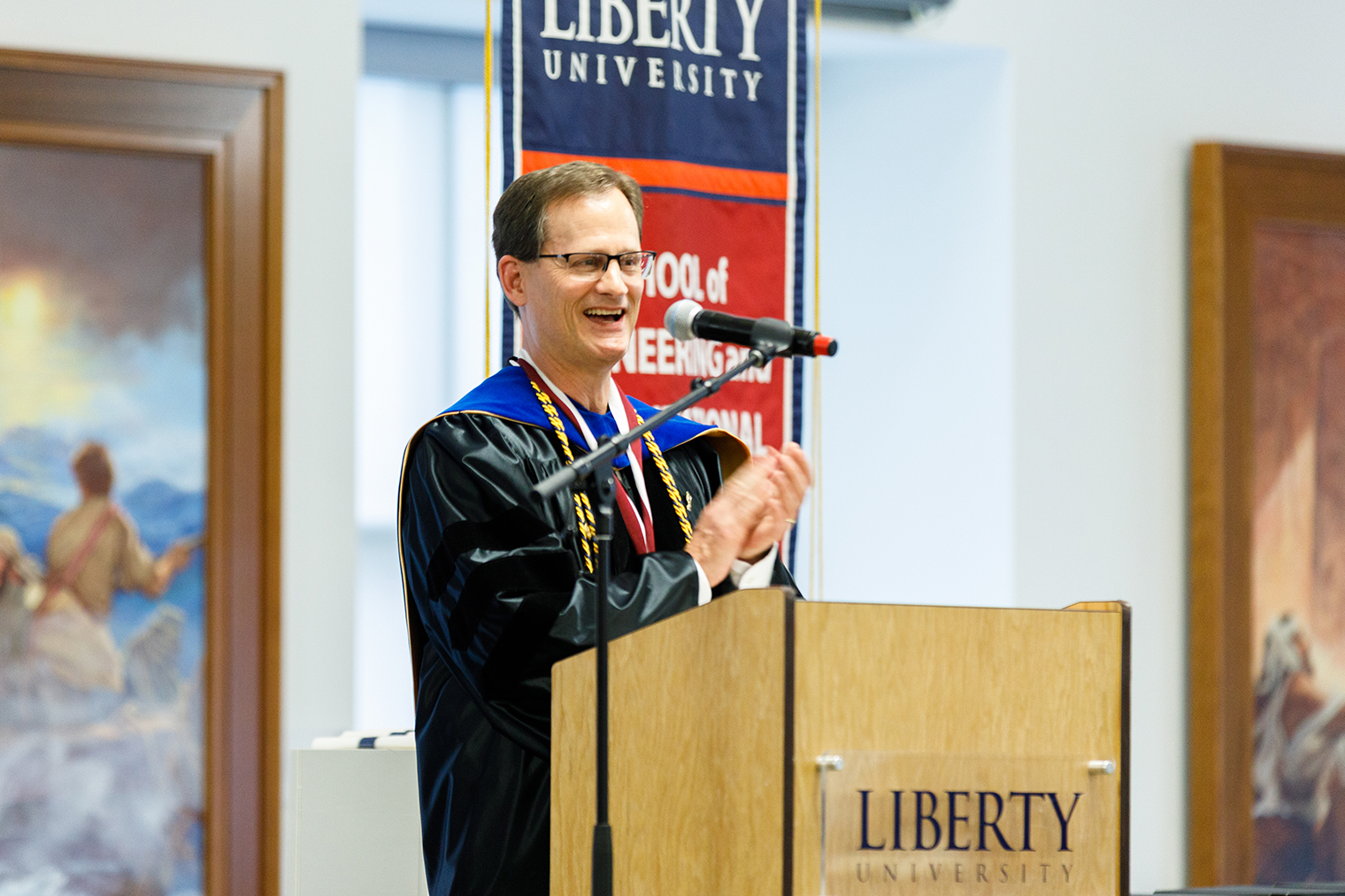 Horstemeyer is a fellow of the American Society of Mechanical Engineers, Society of Automotive Engineers, The American Society for Metals, and the American Association for the Advancement of Science. He is also a member of the National Academy of Engineering for the European Union. He previously served in Mississippi State University’s Center for Advanced Vehicular Systems, one of the world’s premier automotive research centers.
Horstemeyer is a fellow of the American Society of Mechanical Engineers, Society of Automotive Engineers, The American Society for Metals, and the American Association for the Advancement of Science. He is also a member of the National Academy of Engineering for the European Union. He previously served in Mississippi State University’s Center for Advanced Vehicular Systems, one of the world’s premier automotive research centers.
“We want to raise the next generation of Christian intellectuals,” Horstemeyer said. “We are going to train our students to learn principles from how God made things in the natural world, related to our undergraduate, master’s, and Ph.D. programs.”
